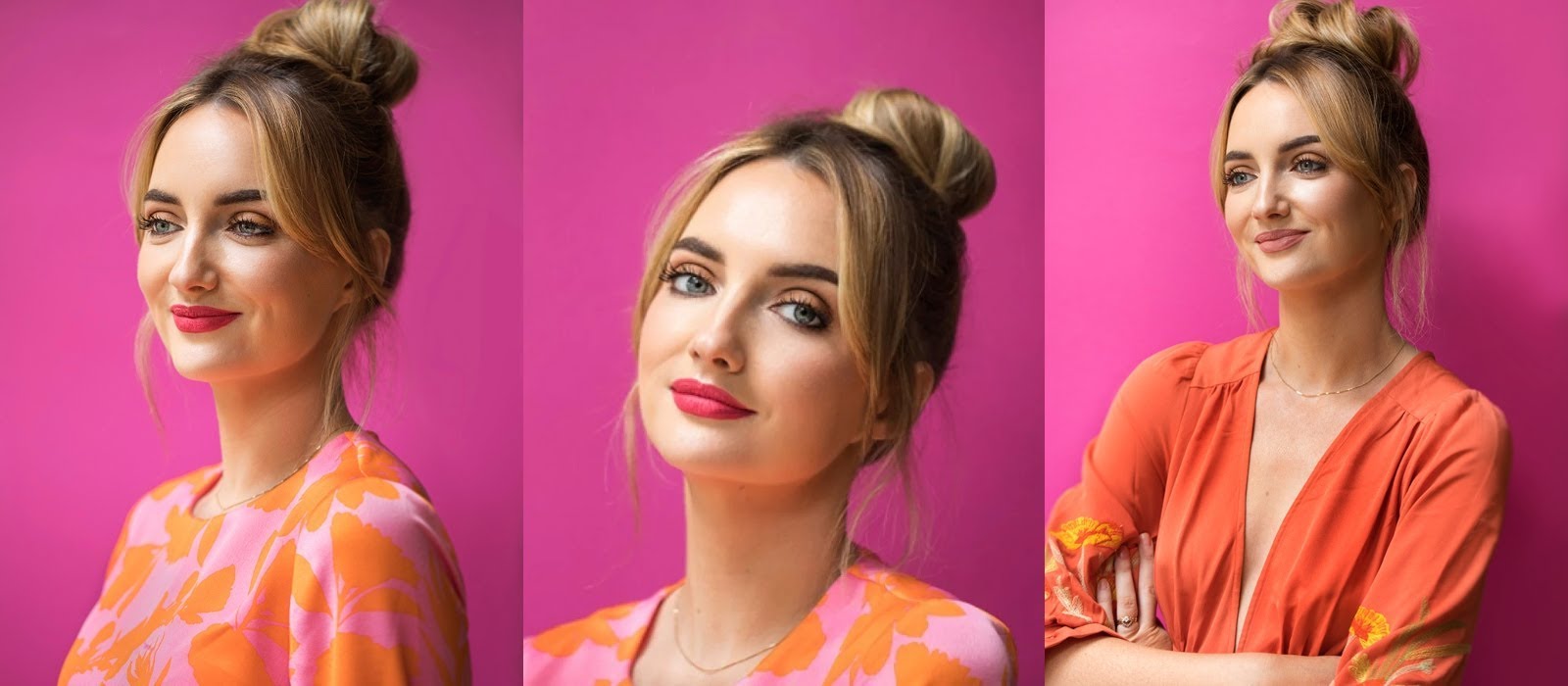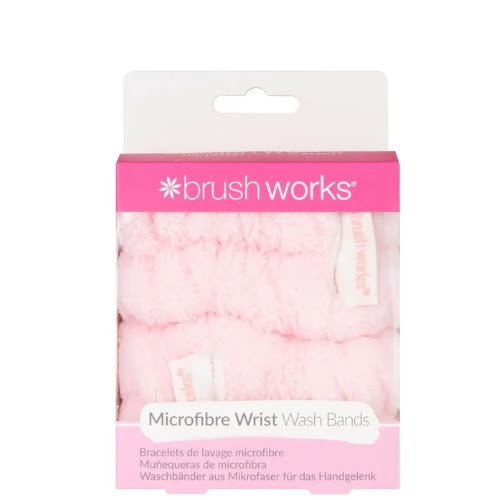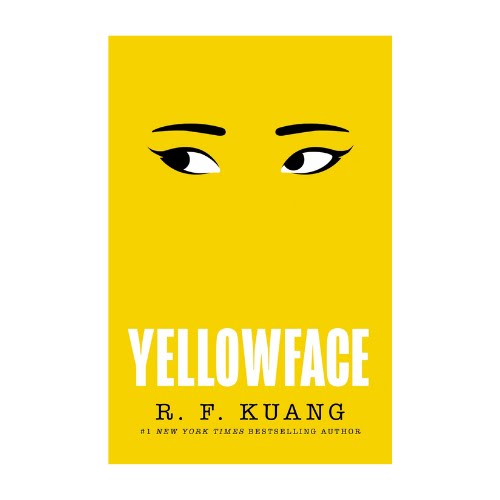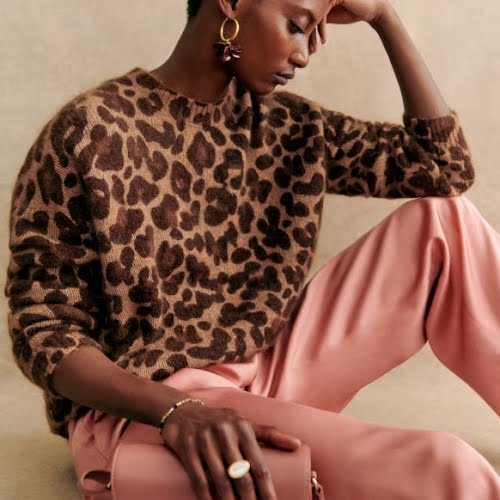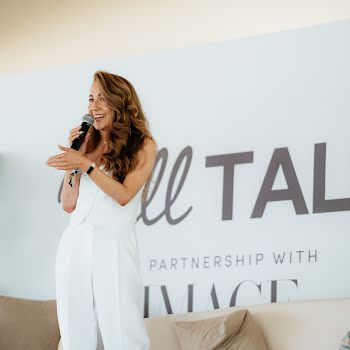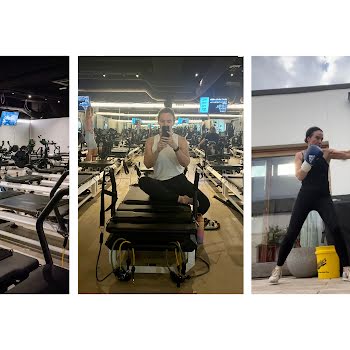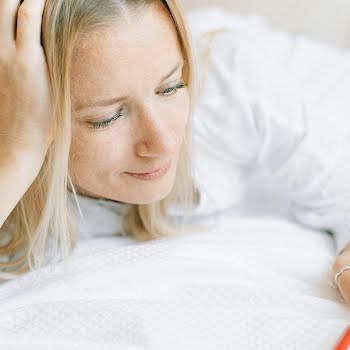
IMAGE.ie columnist and bestselling author Caroline Foran on why this particular piece of advice is unwelcome.
I get a lot of advice on Instagram, almost exclusively around parenting. And I get it; I have shared every experience along the way. The good, the bad, the drive-you-to-the-bottle experiences. If there’s one topic that gets people hammering away on their keyboards it’s parenting, or more specifically mothering (there’s not a lot of Dads getting it from all angles about how their baby “really should have been breastfed”). Sometimes people’s advice is well-meaning, sometimes it’s merely judgement veiled as faux concern. Sometimes it’s outright aggression, never mind the passive kind.
I must be getting thicker skin because the nasty messages are having less and less of an impact on me. In fact the meaner the comment, the more I’m likely to laugh. There is one particular kind of message though that, of late, is sending me into orbit. It’s not always meant in a hurtful way, but it always hurts. It’s the belief that a parent (me) will pass on any and all of their anxiety to their child (my child), and that if the child is anxious, it’s because they’re absorbing all that anxious energy from you. Now this is a contentious issue because research has drawn correlations between an anxious parent and an anxious child. This might certainly be true in some instances. If, for example, I was too anxious about my son starting preschool that I just didn’t go for it, and he missed out on those two years of prep ahead of ‘big’ school, that would be me letting my anxiety influence his life and perhaps creating an anxiety in him that wasn’t there in the first place. If I found it too difficult to separate from my son to the extent that I never let it happen, that would be me creating an unhealthy attachment that may eventually have adverse effects on him, leading to his own experience of anxiety.
But some kids are just born with more of an anxious nature. In psychology circles it’s described as being born with a smaller ‘window of tolerance’ (essentially, what one child can tolerate before their stress response kicks in may be much smaller than others). And some parents – despite their own experience of anxiety in the past – will become anxious parents as they worry about and try to support their anxious child. The idea that a child is experiencing anxiety because you, the parent, are passing it on to them is, in a lot of cases, untrue. The same parent could have another child who, born with a much larger window of tolerance, finds adjusting to things like separation or starting creche or preschool a walk in the park. Same parent. Same parenting, different child.
I am incredibly aware of my own anxiety, but my anxiety is not about being parted from my son, it’s because I know he has such a hard time being parted from me. My anxiety around this transition we’re currently in the throes of is based on our past experience – where separation anxiety has been incredibly challenging – and the fact that evidence (i.e. us trying to get into class each morning) confirms my worries are valid. I want nothing more than to see him skipping into his Montessori class, at which point I will turn the other way and walk right into the nearest bar and celebrate with a bottle of Champagne. I want that for him so much, but because he struggles, I struggle too. The idea that my anxious nature is at the root of his own anxiety does nothing more than place unwarranted blame on the parent who, frankly, may be doing their absolute best to empower, support, encourage and model confidence and independence for their child.
While more and more people are becoming aware of passing their anxiety onto their child – and rightfully so, we don’t want to lodge our own worries into their little work-in-progress brains – there’s still not enough understanding around children of different temperaments. How some, even with the most laid-back, chilled-out parent, can still emerge from the womb with an air of concern that can have a huge impact on their formative years.
On top of the suggestion that a parent’s anxiety results in a child’s anxiety, is the idea that your child is one of millions who has to go through these kinds of adjustments so you really shouldn’t get so worked up about it. If, like me, you are anxious about your child’s experience because they have struggled with this kind of thing in the past or are struggling right now (both for me are true), it doesn’t matter, nor is it helpful to be told that other kids have been through it. It diminishes and invalidates your feelings. It disallows you to be where you are and feel the anxiety that is perhaps necessary for you to feel right now. And the reason you feel such anxiety is probably because you care so damn much about them.
Just as much as your feelings are valid, so too are your child’s. We don’t need to work towards an anxiety free world. Trying to suppress or avoid these more challenging emotions is what’s gotten a lot of us into a tricky mental health space to begin with. My child doesn’t need to wake up tomorrow and not feel anxious in order to move forward and eventually thrive in this world. He needs to know that it makes sense to feel that way, that it’s incredibly normal and natural and that with support, compassion and my loving arms to return to, he will get there in his own time. His window of tolerance will grow. Unlike my window of tolerance for these kinds of messages.
CURRENTLY OBSESSED WITH…
I’m currently obsessed with wristbands to catch the drips as you step through your skincare routine. Gamechanger. Nobody wants the sensation of a damp sleeve. Yellowface by R.F Kuang is an absolute page-turner with bitingly sharp writing. I love ASMR videos on YouTube. Particularly Cap Bailey whose role-play videos of getting a cranial nerve exam should send you to sleep within minutes. Finally, leopard print, the only pattern you’ll find in my wardrobe beyond a stripe. Loving this jumper from Sezane.
Photography by @carolineforan. We may earn a commission if you buy something from any affiliate links on our site.











